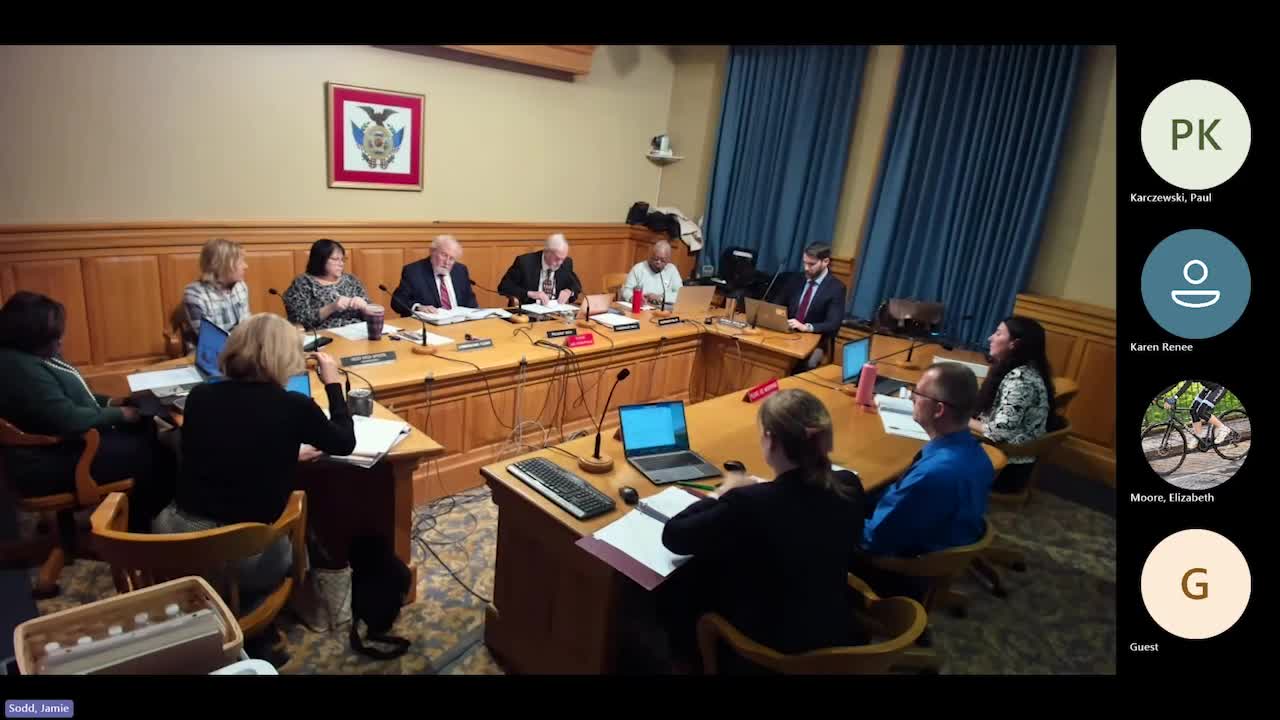Milwaukee hearing on accounting managerappeal centers on whether repeated ACH warnings warranted discharge
Get AI-powered insights, summaries, and transcripts
Subscribe
Summary
The Board of City Service Commissioners met Nov. 10 to hear the discharge appeal of Christopher Huante, the former accounting manager at the City of Milwaukee ComptrollerOffice, after the comptrollersaid repeated email warnings about suspected ACH fraud were not escalated and the city suffered roughly $460,000 in misdirected payments.
The Board of City Service Commissioners met Nov. 10 to hear the discharge appeal of Christopher Huante, the former accounting manager in the City of Milwaukee ComptrollerOffice. The comptrollersaid Huante failed to escalate a string of email warnings about suspected ACH (electronic) fraud that preceded misdirected payments of about $460,000; Huante and his attorney said the evidence shows missed oversight and delegation, not misconduct. The panel scheduled a continuation for Nov. 18 to hear additional witnesses and closing arguments.
Assistant City Attorney Katherine Headley, speaking for the comptrolleroffice, described a multi-stage investigation and presented a chain of emails and documents she said showed numerous chances to notice and report suspicious vendor-account changes. "Mr. Huante was given not 1, not 2, not 3, but 14 different opportunities to rectify a mistake that cost the city over a $100,000," Headley told the commission, pointing to an ACH authorization form and a bank verification letter she characterized as riddled with "red flags." Deputy Comptroller Charles Radel, who led the officeinvestigation, testified that the documentation and email threads showed a bad actor using a fraudulent domain to request changes and that the office later learned of a prior, similar incident the treasurerhad investigated.
Radel said staff eventually recorded a payment made on July 15, 2025 that he described as "approximately $460,000," and that the comptroller's review showed earlier warning messages had been routed through staff but were not elevated to leadership. "He was the root cause of the frauds that occurred," Radel said, explaining the office's conclusion that Huante had not changed processes after the earlier alerts and therefore could not be trusted to perform essential duties.
Comptroller William Christiansen said he acted quickly after being notified on Aug. 4, 2025 and brought in treasury and law enforcement contacts to try to recover funds. He told the commission that the combination of the size of the loss and the apparent failure to notify leadership justified the departmentrecommending discharge. "Money was stolen from the city," Christiansen said, and later described the conduct as "not a mistake" but "in my view, gross negligence."
Huante, who testified in his own defense, described a 26-year career in Milwaukee government and a management style that delegated routine form review to experienced staff, most prominently accounting specialist Margie Carbajal. He said he relied on established procedures and trusted subordinates to handle vendor inquiries and ACH documentation. Huante acknowledged the ACH paperwork "looks awful" in hindsight and said he accepts responsibility for not catching the red flags: "In hindsight, absolutely," he told the commission. He said he would have responded differently if alerted earlier and described steps he would take to improve monitoring and communication.
Several current and former colleagues testified on Huante's behalf about his technical competence and long record. David Pete, budget manager for the Department of City Development, told commissioners that Huante was a leading technical resource whose absence would complicate complex audits. Tawanda Swanigan of the City Attorney's Office and retired manager Claudia Arugbani also described Huante as competent and professional.
Margie Carbajal, the accounts-payable specialist who handled the ACH packages at issue, described the unitprocess: she would request and review the vendorprovided ACH authorization form and bank letter, then present the paperwork to a manager (one of three named approvers) for initials before FMIS entry. Carbajal testified she promptly CC'd Huante and other supervisors as questions arose and that she sent multiple rapid emails on March 25, 2025 asking for guidance after being told Walnut Way (the vendor) reported it had not been paid. She said she expected supervisory follow-up.
The hearing recorded a mix of factual findings and competing characterizations. Department counsel emphasized that red flags on D15 and related exhibits made the fraudulent change apparent and that a failure to escalate or change controls after earlier alerts allowed a second fraud to occur. Defense counsel stressed Huante's long record, the complexity of his duties (including the annual financial report and an ERP transition) and that progressive discipline would have been a reasonable response for a longtime manager who acknowledged mistakes.
The commission admitted a series of exhibits into the record, heard testimony from witnesses the department and appellant called, and debated procedural objections over unstipulated documents. The Board stopped testimony in the late afternoon because a key witness (accounts director Rick Baer) was unavailable and agreed to reconvene to call him and conclude the hearing. The commission scheduled the resumption of the hearing for Nov. 18 to permit Baerand others to testify and to allow closing arguments and deliberation.
Pending further testimony, the record before the commission includes contested documentary evidence (exhibits D1through D37, including ACH forms, email chains and performance reviews), sworn witness accounts from deputy leadership and staff, and competing legal arguments about whether Huanteshould have been discharged or received lesser discipline. The Board did not render a final decision on Nov. 10; it recessed to gather additional testimony and to permit full deliberation after the hearing resumes.
Next procedural step: the commission will reconvene Nov. 18 to complete testimony (the department indicated it will call Rick Baer and other witnesses), receive final closing arguments and deliberate in closed session on the discharge appeal.
